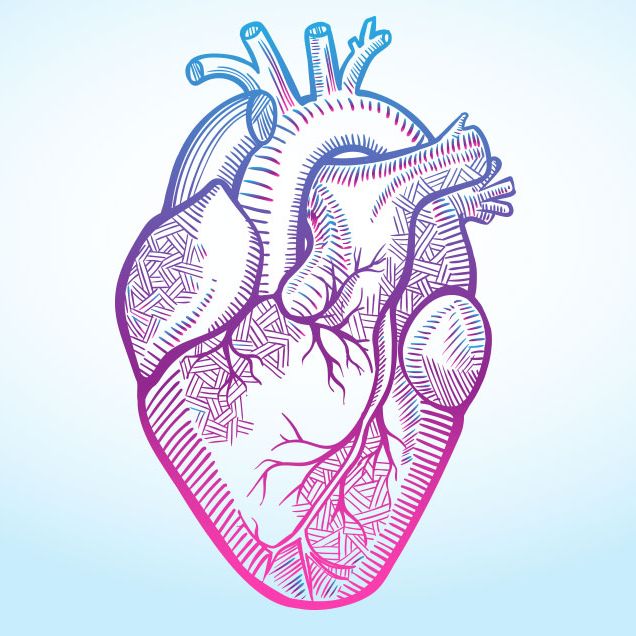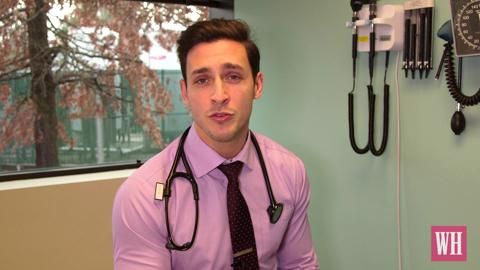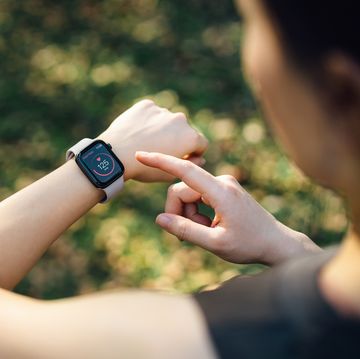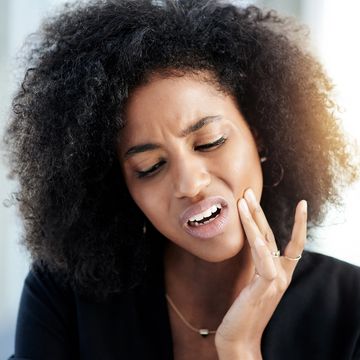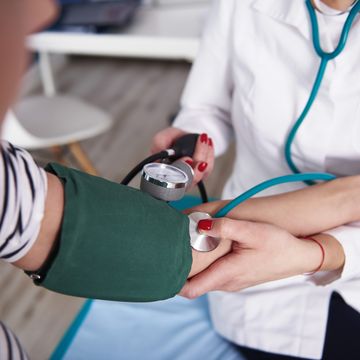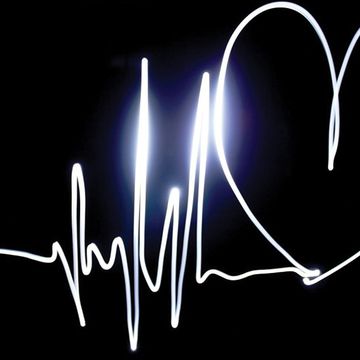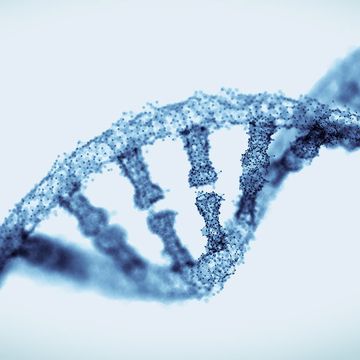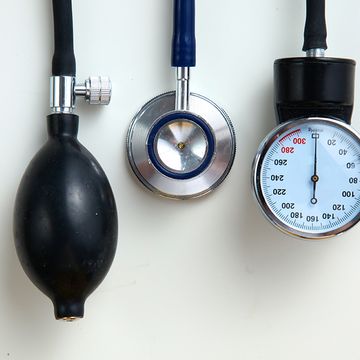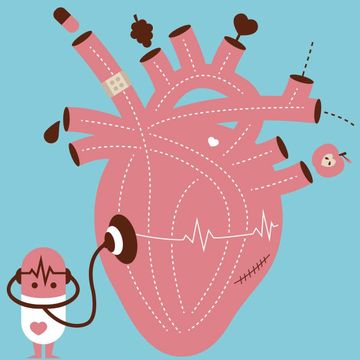Heart disease is the leading cause of death for women in the United States, according to the Centers for Disease Control and Prevention. That means that one in every four female deaths can be attributed to heart disease. (That’s about the same number as men, by the way—which means you can’t write heart disease off as a guys’ issue.) The scariest part about it, though? Only 54 percent of women actually recognize that fact, according to the CDC.
But what actually is heart disease? It's pretty much an umbrella term for anything in your heart going amok. (So, no, it's not just heart attacks.) "Heart disease is most commonly due to blockages in the arteries, which is known as atherosclerosis,” says Suzanne Steinbaum, D.O., director of women's heart health at the Heart and Vascular Institute at Lenox Hill Hospital in New York and a co-founder of the Global Nutrition and Health Alliance (GNHA). “But there are four parts to the heart, and heart disease could be a problem with any of them,” she says.
Apart from the arteries, there are the heart's valves, which could be tight or leaky. Then there’s the electric system, which could cause your heart to beat too fast, too slow, or have extra beats. And, finally, there’s the myocardium (heart muscle) and pericardium (lining of the heart), which could become inflamed, too thick, or too thin, she says.
Basically, there's a lot that could go wrong with the heart. And real-life heart conditions aren’t always as dramatic and sudden as what you see on TV or in the movies. Some women might never notice their heart disease symptoms until they’re felled by a heart attack or stroke, Steinbaum says. Many don't even know what to look for.
Here, five symptoms of heart disease that you shouldn't shrug off.
Shortness of Breath
Sometimes, getting short of breath at the top of the stairs is a sign that you need to up your workouts or take your allergy meds. Other times, it's a sign of heart disease, says Steinbaum. “It’s all about oxygen delivery," she says, explaining that, in people with heart disease, the heart struggles to get oxygen where it needs to go throughout the body. The result: you feel like you can't ever quite catch your breath.
As heart disease progresses, breathing problems can worsen to the point that lying flat in bed isn't even an option; it too severely limits what air flow they do have, she says. If you struggle with shortness or breath that isn't treated with allergy medications or other doctor-recommended measures, it's time for a second opinion.
Watch a hot doc explain what can aggravate asthma:
A Heavy Chest
Along with shortness of breath, chest pain or discomfort, also known as angina, is one of the most common heart disease symptoms, says Steinbaum. This is the ache of your heart not getting enough oxygen.
It may feel like a squeezing sensation or pressure on top of your chest; in some women, it can feel like indigestion. If you experience any of these feelings and there’s no other explanation, you should head straight to the doctor or even the emergency room, she says.
Related: Your Blood Type Might Put You At A Greater Risk For These 5 Conditions
Random Body Aches
Still, some women with heart disease don't experience pain in their chests at all. Instead, they experience pain in their abdomens. Others feel it in their jaw or even their neck, says Steinbaum.
It’s a non-specific feeling that women who tend to be used to pain (thank you, period cramps) can easily brush off. “But if you know what you can do on a normal day, and all of a sudden whatever the symptom may be is making your normal activities more challenging, you’ve got to think of your heart and head to the doctor immediately,” she says.
(Kick-start your new, healthy routine with Women's Health's 12-Week Total-Body Transformation!)
Loss of Feeling in the Arms and Legs
Along with pain or coldness, numbness and weakness in the arms or legs can be a sign that your extremities aren't getting the flow of blood and oxygen that they need, says Steinbaum. Over time, a lack of blood flow can result in nerve damage, and the effects of nerve damage are wide-ranging. Basically anything you do (or don't) feel in your arms and legs is related to nerve health.
“If there’s no other reason for the pain or sensation, you have to think heart," she says. "It’s better to be safe than sorry."
Related: 5 Body Odors You Should Never Ignore
Heart Palpitations
Have you ever felt your heart flutter? That’s a heart palpitation, or an arrhythmia. “Your heart is beating too quickly or irregularly," says Steinbaum. “You can feel it. It’s that simple.”
In people with heart disease, palpitations can point to issues with the heart's valves or even its electric system. However, palpitations are not always a symptom of heart disease. “I often hear people saying they will happen to them right before they go to sleep, and they won’t last long. That’s often due to drinking too much caffeine or wine, being dehydrated, or even stress,” she says.
Related: 'I Drank Lemon Water Every Day for 2 Weeks—Here’s What Happened'
However, if the palpitations last for more than a few minutes, or they are accompanied by other heart disease symptoms on this list, you should immediately see a doctor, she says.

